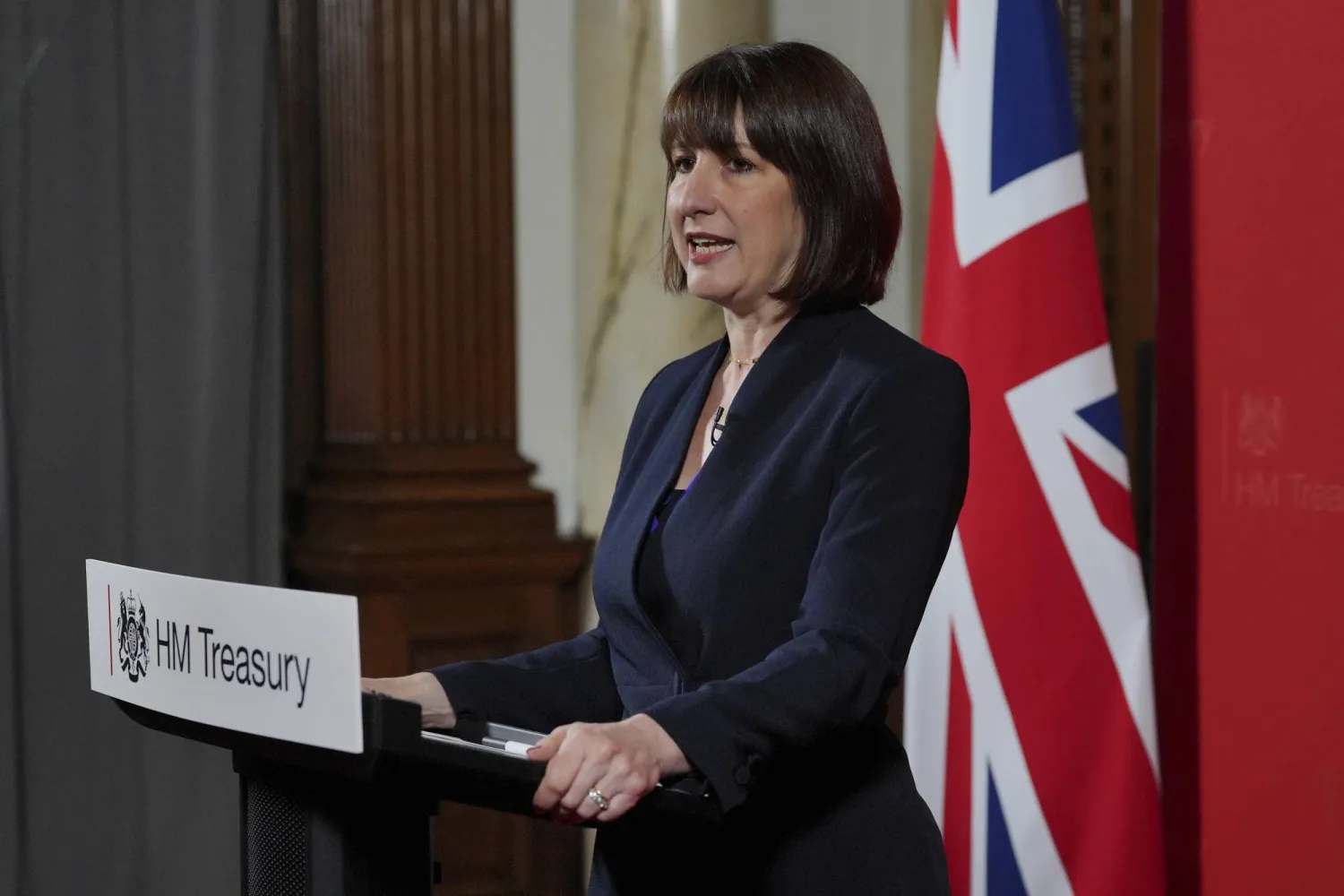Britain's new Labour government will make stimulating economic growth its mission, the Treasury chief said Monday, pledging to limit bureaucracy to make it easier to invest in the country.
In her first major speech, Rachel Reeves said there was no time to waste to reverse what she called “14 years of chaos and economic instability” under Conservative governments.
“Where governments have been unwilling to take the difficult decisions to deliver growth — or have waited too long to act — I will deliver," she told business leaders and reporters.
Britain’s first female Treasury chief and a former Bank of England economist, Reeves said sustained economic growth was the only way to improve living standards for all and to rebuild the country's stretched and underfunded public services.
She said she's taking immediate action to relax planning rules to remove obstacles to building infrastructure, housing and energy projects.
“To investors and businesses who spent 14 years doubting whether Britain is a safe place to invest, then let me tell you, after 14 years, Britain has a stable government,” she said. “In an uncertain world, Britain is a place to do business.”
Reeves said she will assess the “spending inheritance” left by the Conservatives over the coming months before making the government’s first budget statement later this year.
She pledged to set a mandatory target of 1.5 million new homes in England over the next five years, as well as remove an effective ban on onshore wind energy developments that has been in place since 2015.
British Prime Minister Keir Starmer, who became leader on Friday after a landslide majority in last week's election, has promised to “rebuild the infrastructure of opportunity” for voters frustrated with a stagnant economy, rising poverty and dysfunctional public healthcare.
Soaring rental and mortgage rates and a chronic shortage of housing were among the top issues voters raised during the election campaign. Home-building in Britain has slowed down in the past decades, and in the year to March construction began on about 135,000 homes — down by more than one-fifth compared to the year before.
UK Treasury Chief: Stimulating Economic Growth is New Labour Government's Mission

Britain's Chancellor Rachel Reeves delivers a speech at the Treasury to an audience of leading business figures and senior stakeholders, announcing the first steps the new government will be taking to deliver economic growth, in London, Monday July 8, 2024. (Jonathan Brady/Pool Photo via AP)

UK Treasury Chief: Stimulating Economic Growth is New Labour Government's Mission

Britain's Chancellor Rachel Reeves delivers a speech at the Treasury to an audience of leading business figures and senior stakeholders, announcing the first steps the new government will be taking to deliver economic growth, in London, Monday July 8, 2024. (Jonathan Brady/Pool Photo via AP)
لم تشترك بعد
انشئ حساباً خاصاً بك لتحصل على أخبار مخصصة لك ولتتمتع بخاصية حفظ المقالات وتتلقى نشراتنا البريدية المتنوعة







